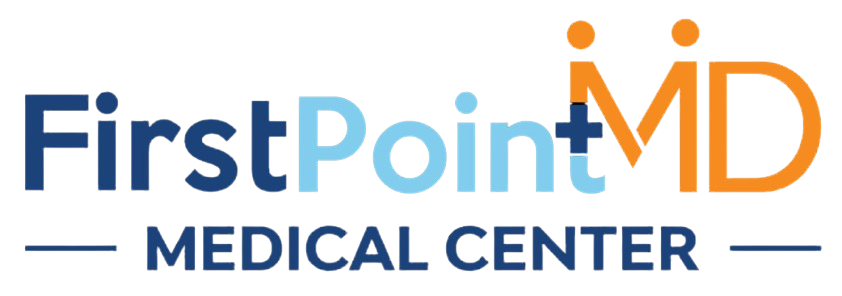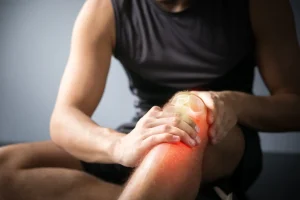What Is the Best Treatment for Joint Pain?

Joint pain—it’s that nagging discomfort that can turn simple activities like walking or lifting a cup into a chore. Whether it stems from arthritis, injury, or overuse, finding the right treatment can feel overwhelming. At FirstPointMD, in Floral Park, NY, we’re here to guide you. From cutting-edge therapies to tried-and-true remedies, let’s explore what’s best for alleviating joint pain and getting you back to what matters most: living your life to the fullest.
Why Does Joint Pain Happen?
Common Causes of Joint Pain
Joint pain doesn’t play favorites—it affects people of all ages for a variety of reasons, such as:
- Arthritis: Osteoarthritis and rheumatoid arthritis are the usual culprits.
- Injury: A twisted ankle or overuse injury can lead to lingering pain.
- Age-related wear and tear: Over time, cartilage wears down, making joints less cushioned.
- Autoimmune conditions: Disorders like lupus can inflame the joints.
When Should You See a Doctor?
While mild joint pain can sometimes be managed at home, here are signs you should book an appointment with FirstPointMD:
- Persistent pain lasting more than a week.
- Swelling or redness in the joint.
- Difficulty moving the joint or bearing weight.
What Is the Best Treatment for Joint Pain?
Over-the-Counter Solutions: First Steps to Relief
In my experience, starting with accessible remedies like NSAIDs can provide immediate relief for many individuals suffering from joint pain:
- NSAIDs (Nonsteroidal Anti-Inflammatory Drugs): Ibuprofen and naproxen reduce inflammation and pain.
- Topical creams: Products like menthol or capsaicin creams can provide targeted relief.
- Heat and ice therapy: Alternate between the two to soothe stiffness and reduce swelling.
Physical Therapy: Strengthening the Foundation
Our team at FirstPointMD often recommends physical therapy as part of a joint pain treatment plan. Why? Because:
- Strengthening exercises stabilize the joints.
- Stretching routines improve flexibility.
- Manual therapy helps reduce tension in surrounding muscles.
Advanced Treatments at FirstPointMD
Joint Injections: Precision Pain Relief
In cases where pain continues despite initial treatments, I’ve found that targeted injections, such as corticosteroids or hyaluronic acid, can offer significant relief by addressing the inflammation directly:
- Corticosteroids: These reduce inflammation directly in the joint.
- Hyaluronic acid: Think of it as a lubricant for joints, often used for knee osteoarthritis.
- Platelet-rich plasma (PRP): Using your own blood, PRP stimulates healing and reduces pain.
Cutting-Edge Alternatives: Regenerative Medicine
At FirstPointMD, we’re proud to offer innovative treatments like stem cell therapy, which harnesses the body’s natural healing power.
Surgery: A Last Resort
Sometimes, surgical intervention is necessary for severe cases. Options include:
- Arthroscopy: Minimally invasive procedures to repair joint damage.
- Joint replacement: For worn-out joints, this can restore mobility and relieve pain.
Lifestyle Changes to Support Healthy Joints
Keep Moving, Even If It’s Hard
In my clinical experience, I’ve observed that engaging in regular, low-impact exercise like swimming or yoga can greatly enhance joint health and mobility, making it easier to perform daily activities. Low-impact options like swimming or yoga keep the joints active without overloading them.
Watch Your Weight
Every pound of extra weight adds stress to your joints. Losing even a few pounds can significantly reduce pain, especially in the knees and hips.
Eat to Heal
Certain foods are natural inflammation fighters. Add these to your plate:
- Fatty fish like salmon for omega-3s.
- Leafy greens packed with antioxidants.
- Turmeric, a natural anti-inflammatory spice.
FAQs
Can joint pain go away on its own?
Sometimes! Mild pain due to overuse or minor injury often resolves with rest, ice, and over-the-counter medications. However, chronic pain or pain due to an underlying condition like arthritis requires medical attention.
Is surgery the only option for severe joint pain?
Not always. Many non-surgical treatments, such as injections and regenerative therapies, can be highly effective. At FirstPointMD, we tailor treatments to your unique needs.
Are there natural remedies for joint pain?
Absolutely. Along with diet and exercise, supplements like glucosamine and chondroitin can help some individuals manage joint discomfort.
Conclusion
Joint pain doesn’t have to control your life. At FirstPointMD, based in Floral Park, NY, we’re passionate about finding the best treatment plan for you. From physical therapy to advanced regenerative medicine, our team is ready to help you move better and feel your best.
Ready to take the first step toward a pain-free life? Schedule your consultation today, and let’s tackle joint pain together!




